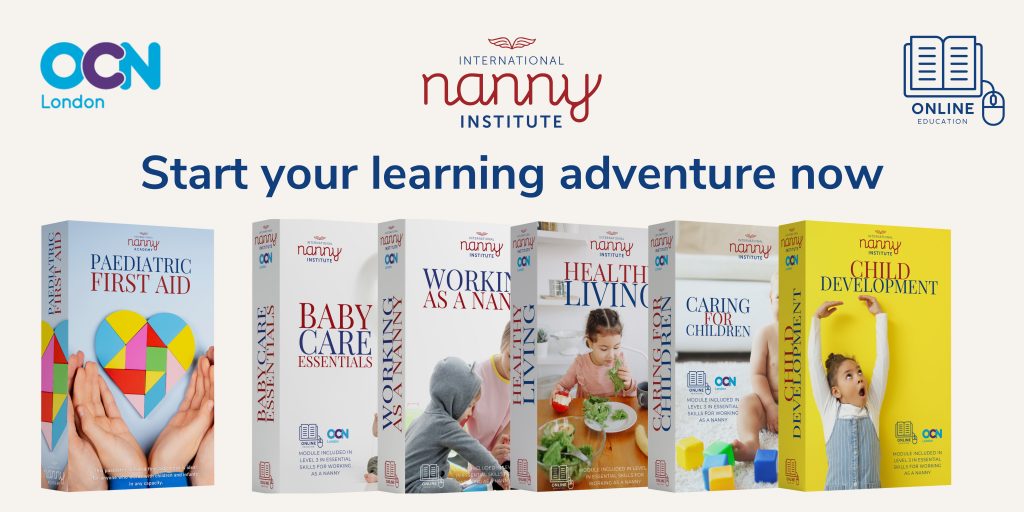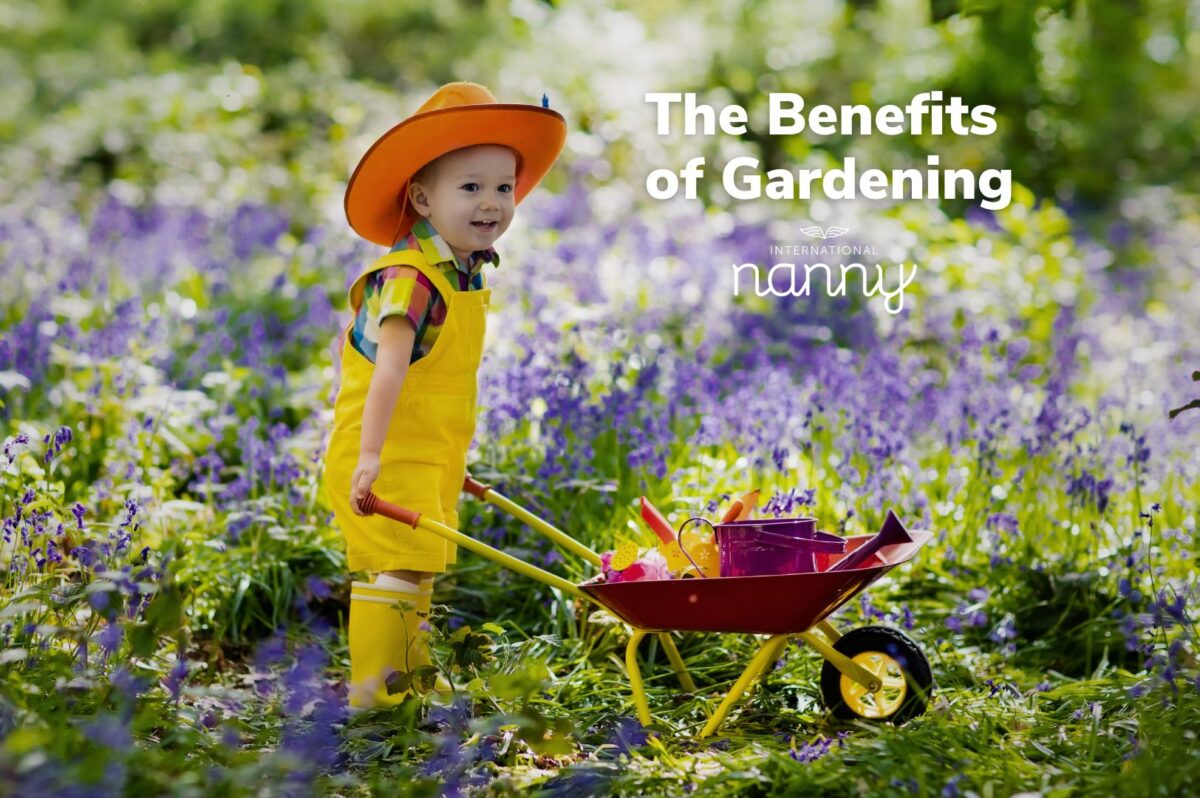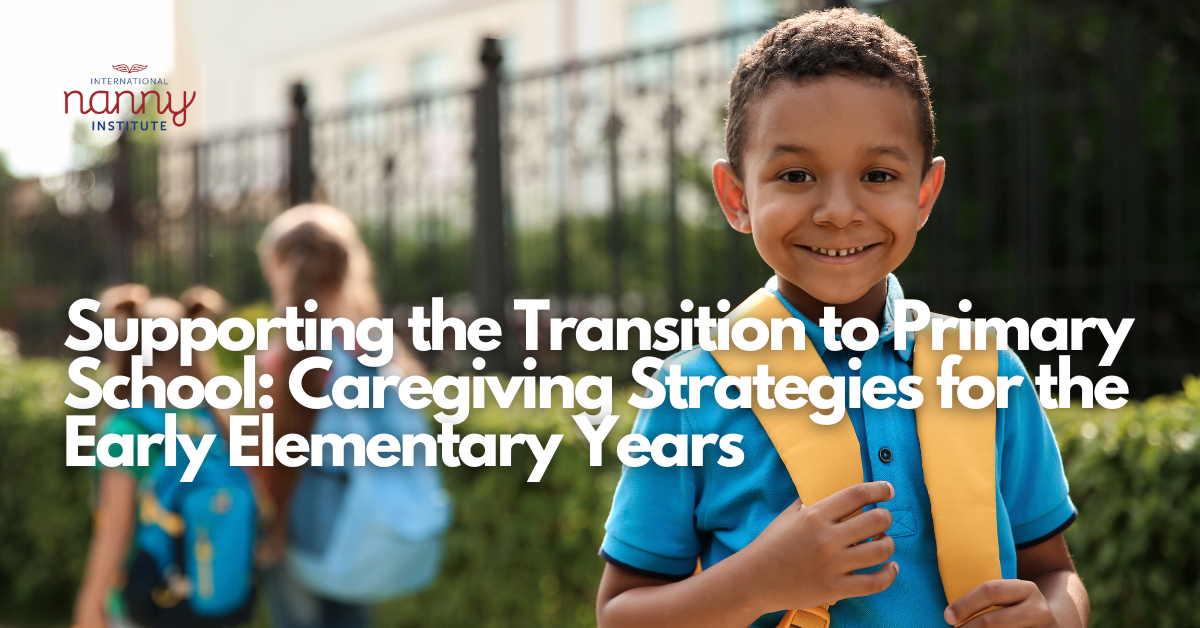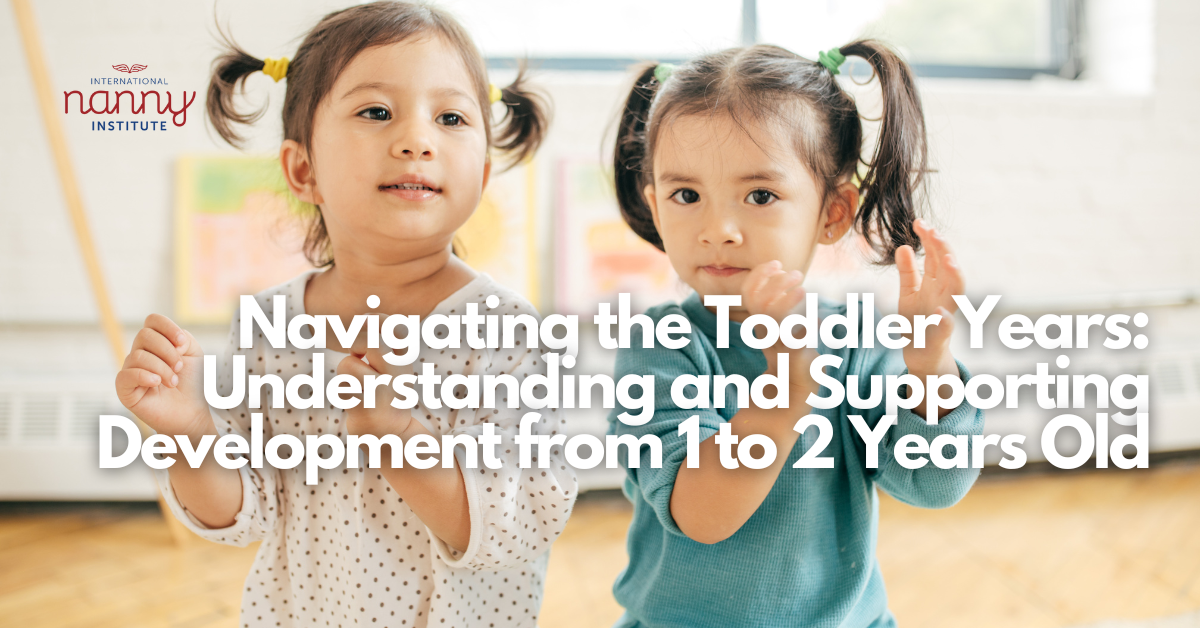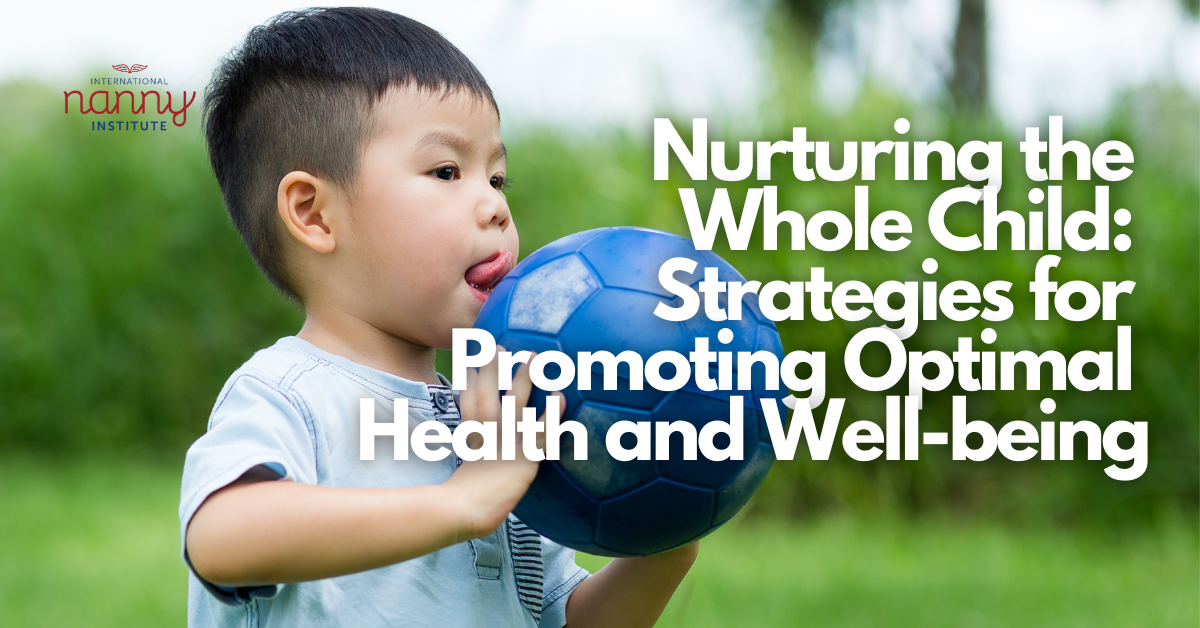The Benefits of Gardening
Gardening is a fantastic activity that can benefit children of all ages. Whether it is growing herbs, vegetables or flowers, getting children involved in gardening provides a range of physical, mental, and emotional advantages. In this blog post, we will explore why gardening is such an excellent activity for toddlers, young children, and teenagers and give nannies some ideas for getting started with gardening
Benefits of Gardening for Toddlers
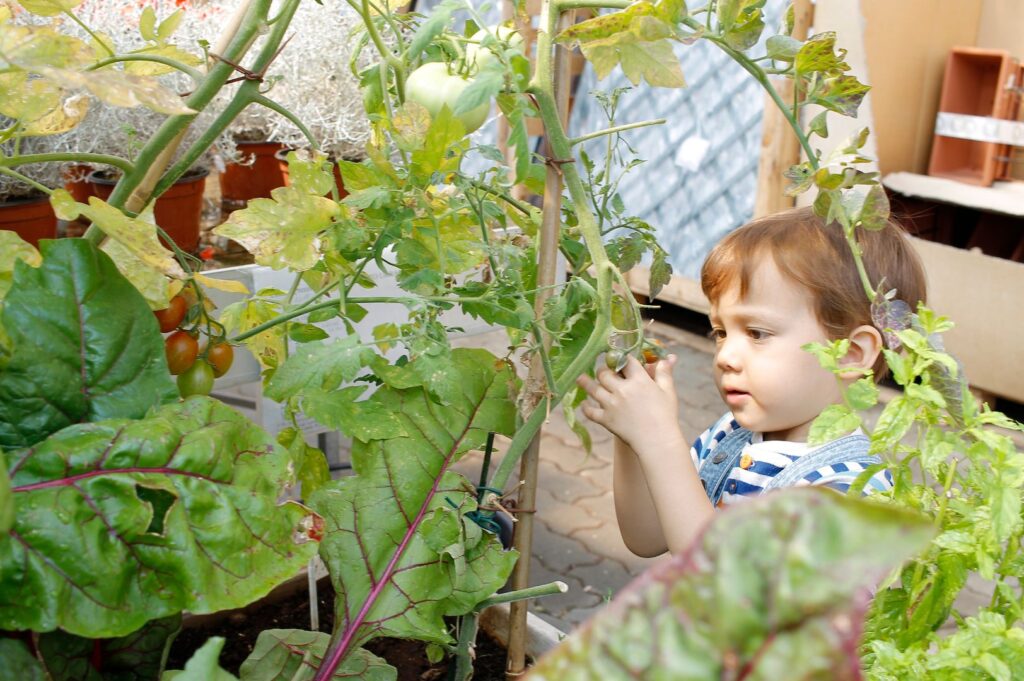
Gardening can be an enjoyable and rewarding activity for toddlers, providing numerous health and developmental benefits, including:
Sensory Development
Gardening provides children with an opportunity to experience different textures, smells, tastes, and sounds from the natural environment. For example, children can be encouraged to feel the soil in their hands, or taste produce they have grown. Rich, sensory experiences in the early years enhance children’s emotional and cognitive development.
Fine Motor Skills:
Gardening involves a range of small, delicate movements, which are essential for fine motor skill development. These movements encourage the development of hand-eye coordination and dexterity and all of these things help to build up the skills that children will later need for writing.
Cognitive Development:
Gardening offers numerous creative and problem-solving opportunities that help toddlers to develop their cognitive abilities, such as creativity, attention to detail, and problem-solving. For example, children can be encouraged to observe the ways that plants grow, or that the garden changes as the seasons progress and offer ideas about how and why this might happen
Curiosity and Exploration:
Toddlers are naturally curious and often love to explore. Gardening encourages children to explore and learn about new things while engaging their sense of curiosity and wonder.
Benefits of Gardening for Young Children
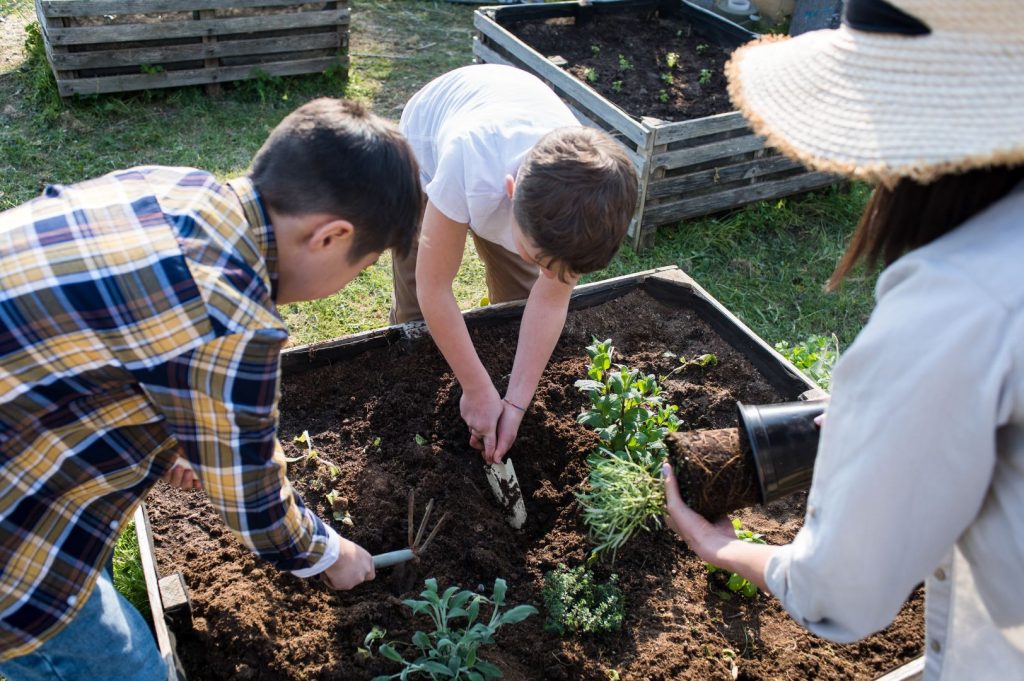
Gardening also offers plenty of physical and mental benefits to young children. Here are some of these benefits:
Environmental Awareness:
Gardening provides an opportunity to teach young children about the environment and the importance of preserving natural resources. It also helps them develop an appreciation for the ecosystem and the role of plants in our lives.
Responsibility and Independence:
Gardening offers a chance to teach young children responsibility and independence. Plant care, watering, and weeding can all be enjoyable tasks that teach children to take ownership of tasks and develop a sense of responsibility, along with recognising the consequences of not fulfilling responsibilities if plants fail to grow or thrive!
Nutritional Awareness:
Gardening is a fantastic way to teach young children about the importance of healthy eating habits in a practical and meaningful way. They can learn about the nutritional value of plants and the benefits of fresh fruits and vegetables, which can have a lasting impact on their health choices.
Socialisation:
Gardening is a great activity for children to do in groups, which can help with socialisation and improve communication skills. Additionally, gardening provides an opportunity for children to experience teamwork and share responsibilities.
Benefits of Gardening for Teenagers
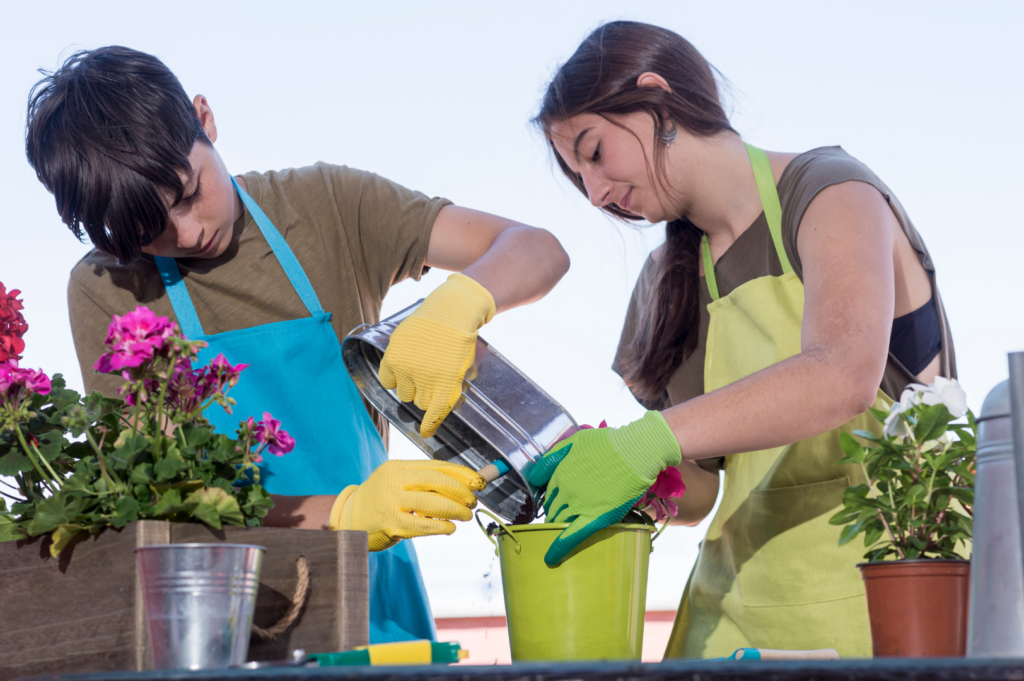
Teenagers can also benefit from gardening. Here are some of the benefits for teenagers:
Stress Relief:
Gardening can be an excellent way for teenagers to unwind from their daily routines and reduce stress. The fresh air, sun, and physical activity can be therapeutic and help improve their emotional and physiological well-being.
STEM Education:
Gardening is a multi-disciplinary activity and can provide teenagers with a wealth of knowledge and skills related to science, technology, engineering, and mathematics. Gardening helps teenagers develop better scientific thinking and critical thinking skills.
Creative Expression:
Gardening is an excellent way for teenagers to express themselves creatively through landscaping, choosing plant types and pairings, and garden design. With so many different types of gardens, from formal to cottage to tropical, young people can create their vision and express their creativity uniquely.
Work Ethic and Entrepreneurship:
Gardening and growing plants require a great deal of time, effort, and dedication. Gardening provides opportunities for teenagers to develop excellent work ethics and entrepreneurial skills if they want to develop their gardens and sell their produce to the community.
Getting Started with Gardening
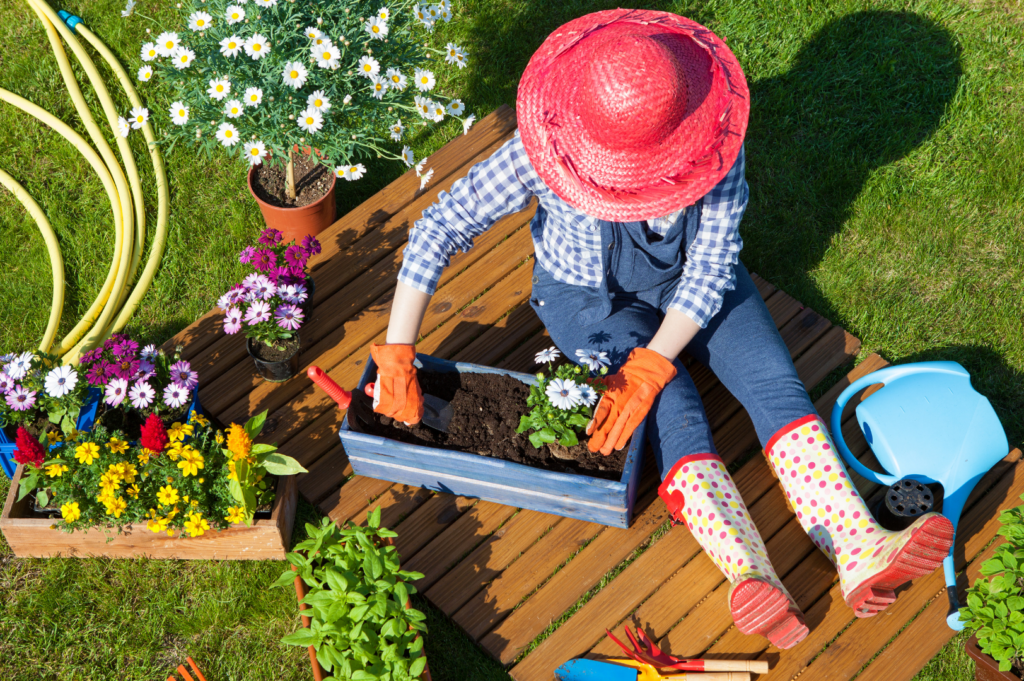
Starting a garden with children can be a fun and rewarding experience for both children and adults. Here are some tips for getting started:
Choose the Right Plants:
When choosing plants, consider the child’s age and interests, as well as the type of garden that you want to create. Colourful flowers, herbs, and vegetables with bright colours can be great options for children and teens.
Create a Safe Space:
Make sure that the garden is in a safe location and away from potential hazards such as poisonous plants or thorny bushes. Make the garden a “safe space” where children can explore, experiment and learn without worry.
Involve Children in Planning:
Involve children in planning the garden by allowing them to select plants that interest them, help them create a design, and choose the layout for planting. This helps them to foster a sense of ownership and excitement around the upcoming gardening.
Provide Child-Friendly Garden Tools:
Small garden tools such as kid-sized gardening gloves, shovels, rakes, and watering cans that they can use comfortably and safely can help make gardening more enjoyable for children.
Give Adequate Support:
Provide adequate support to the children to ensure their success. To ensure they are healthy and strong, teach them basic plant care tools such as watering, pruning, and feeding plants.
Gardening is an activity that many associate with being a chore as an adult, or a hobby once retired, but it is an underappreciated activity in childcare and has several benefits for children of all ages. It provides a wealth of cognitive, social, health, and emotional benefits, making it a fantastic activity for toddlers, young children, and teenagers.
Nannies should start small with easy-to-grow plants and work slowly so that children can learn and master the skills required for a successful garden. Remember to make the experience enjoyable for children, so they remain engaged and enthusiastic throughout the process. With patience, hard work, and creativity, gardening can be a fun and rewarding experience for children of all ages. Start planting today and help children to reap the benefits of gardening!
